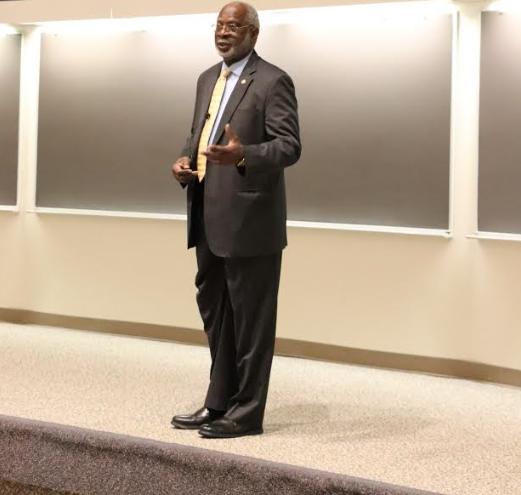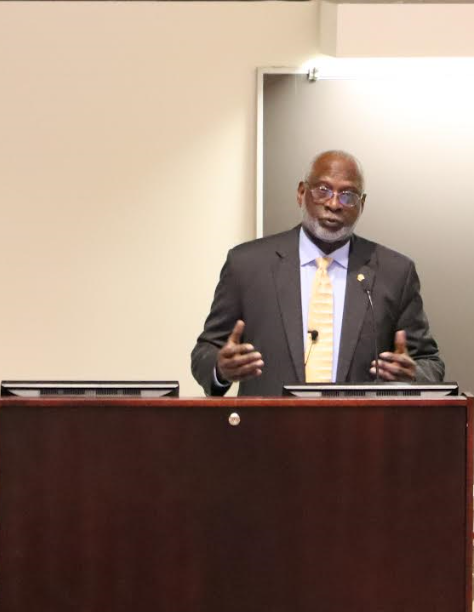By Erica Wright
The Birmingham Times

David Satcher, who served as the 16th Surgeon General of the United States, told students and faculty during a lecture at UAB last week that he almost died of whooping cough when he was two years old.
“At the time, the hospital in Anniston was segregated and there was one black physician in Anniston named Dr. Jackson and had agreed to come to the farm,” recalled Satcher, who was born in Anniston. “By the time he got there, I had pneumonia also and he actually thought I wasn’t going to live and told my parents I probably wouldn’t live through the week, but that didn’t stop him from doing everything he could to give me the best care.”
Jackson was able to save Satcher and because of that, by the time he was six years old, Satcher he knew he wanted to become a doctor like Dr. Jackson.
Satcher recalled the incident during this speech to the Student National Medical Association’s Lunch and Grow lecture series at UAB as part of a Black History Month celebration. He talked about the challenges for minorities in medicine as well as the importance of leadership.
His lecture focused on three developmental stages that shaped him as a leader. The first growing up as a child in Anniston and seeing a black physician.
“For my sixth birthday, my parents told me they would take me to town to meet Dr. Jackson and I was really excited,” said Satcher. “I never met Dr. Jackson though because he died that year of a stroke, but by the time I was 6, I was telling everybody I knew that I would be a doctor like Dr. Jackson.”
Satcher, 76, said no one in his family had completed high school but he was determined to become a doctor. He quoted Rosa Parks who said, “There is nothing so powerful as a made-up mind.”
Satcher attended Morehouse College in Atlanta and became involved in the student movement, the second phase of his development.
“It was my first real opportunity to confront racism in a way that I had not been able to imagine before,” he said. Satcher said he and other students were jailed for sit-ins and they were bailed out by Dr. Martin Luther King Jr.
Satcher served as student body president before attending medical school where his third phase of development began. At the time, medical schools were integrating and Duke University was looking at Satcher and another black student, he said. However, Duke went with the other student which led Satcher to go to Case Western Reserve University.
“It’s really because of that that I entered the M.D. and Ph.D. programs because Case Western had one of the first,” he said.
“I do think that there are phases of development of leadership, but they all require commitment,” he said. “Martin Luther King Jr. said ‘until a person finds something for which he or she is willing to die, that person is not fit to live,’ so I believe that and it’s very difficult. Sometimes it’s not death only, it could be staying in medical school so there are a lot of things that threaten us in life but leadership development is getting to the point where there are some things for which we’re willing to suffer, we’re willing to take risks, we’re willing to lead.”
Satcher said he’s optimistic about the future which “depends on our finding each other and how together we can provide leadership.
“I think each of us now has a responsibility to put together these leadership teams that can make a difference from the housing project to the public system or wherever,” he said. “I just think we’ve got to start finding people who, when they work together, can do things they never could alone. I think that’s where we are in medicine but I also think that’s where we are in government.”
Satcher has also held top positions at the Charles R. Drew University for Medicine and Science, Meharry Medical College and Morehouse School of Medicine. He has received over 50 honorary degrees and has received numerous awards from diverse organizations and agencies.
He is the founding director and senior advisor for the Satcher Health Leadership Institute at the Morehouse School of Medicine.
The event was one in a lineup that the Student National Medical Association has arranged during Black History Month which will culminate with the chapter’s Annual Integrative Healthcare Summit.





